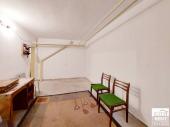|
| Bulgarian statehood has millennial tradition |
|
|
 This year we mark the 1330th anniversary of the Bulgarian state in the Balkans, one of Europe’s oldest countries. Mount Imeon in Central Asia is the land of origin of Bulgarians. This is the thesis of Armenian historian Anania Shirakatsi who lived in 7 c. based on evidence found in various sources dated earlier than his time. It is known that our forefathers took the route from Asia to Europe. “There is evidence about Bulgarian ethno-cultural and military-political presence in the Trans-Azov Black Sea and North Caucasian regions as early as in 1-2 c. AD”, contends historian Plamen Petrov. In 632 the Old Great Bulgaria led by Kubrat Khan emerged in the lands between the Caucasus, the Volga River and the Carpathians. He established that Bulgarian state in the wake of a successful uprising against the Avars.
This year we mark the 1330th anniversary of the Bulgarian state in the Balkans, one of Europe’s oldest countries. Mount Imeon in Central Asia is the land of origin of Bulgarians. This is the thesis of Armenian historian Anania Shirakatsi who lived in 7 c. based on evidence found in various sources dated earlier than his time. It is known that our forefathers took the route from Asia to Europe. “There is evidence about Bulgarian ethno-cultural and military-political presence in the Trans-Azov Black Sea and North Caucasian regions as early as in 1-2 c. AD”, contends historian Plamen Petrov. In 632 the Old Great Bulgaria led by Kubrat Khan emerged in the lands between the Caucasus, the Volga River and the Carpathians. He established that Bulgarian state in the wake of a successful uprising against the Avars.
“In the era before Old Great Bulgaria, Bulgarians were not one of many nomadic people. In fact they had been living in that same region for several hundred years”, Associate Prof. Petrov explains. “During that period the Bulgarians were subordinate to some of the great regional powers, for instance to Attila and the Huns, or to the Avars. With the rise of Kubrat however, the Bulgarian state enhanced its status to what is known as “a steppe empire” and later emerged as one of the key players in Eastern Europe. It is not for nothing that Kubrat was an ally of Byzantium against Persia and the Avar Khaganate, meaning that at the very start of its development as a military-political entity, Bulgarians took a place among the great powers of that time. I am not saying this out of megalomania, far from it. This is the truth found in historical sources.”
Old Great Bulgaria had a dramatic fate. A few decades after it was created, it disintegrated into several parts under the blows of the Khazars from the East. One part of Bulgarians led by Kubrat’s son Asparouh, moved to the western parts of Old Great Bulgaria. Asparouh succeeded in keeping some of those lands. He went on to build a union with Slavonic tribes settled in Moesia, in present-day Northern Bulgaria. The union soon became a major threat to the Byzantine Empire, so Emperor Constantine IV Pogonatus summoned a 40,000-strong army to head to the empire’s North in 680.
“Asparouh was a talented leader who preserved the wealth of the Bulgarian traditions of statehood”, the historian continues. “On the other hand, he was an exceptional strategist. At the delta of the River Danube he built a huge military camp taking up an area of 48 sq. km. The camp covered a few strategic heights and provided important strategic advantages against any enemy. I have been to that place more than once and I have made a few TV reports about it. This was the place where Asparouh caught the Byzantine army into a trap and it had no alternative left but flee the battlefield. For all this we have to acknowledge Asparouh’s gift of a great commander given that he laid a very strong foundation of the Bulgarian military art in the Balkans.”
In 681 Bulgaria and Byzantium signed a peace treaty, and the year is accepted as the beginning of the so-called Danube Bulgaria. As a result, parts of Moesia and lands from the Danube delta were added to what was left from old Bulgaria’s territories. Thracians, Slavs and Bulgarians lived together in the newly seized territories. In the centuries that followed the Bulgarian state expanded and lived through remarkable cultural prosperity. In 9 c. Christianity was made its official religion. The Bulgarian Prince Boris I received the disciples of the authors of the Slavonic alphabet, the holy brothers Cyril and Methodius. Literary centers emerged and their outstanding spiritual creativity influenced significantly the development of other peoples.
http://bnr.bg |
| Monday, Oct 10, 2011 |
|
|
|
|
| » RENTALS |

|
|
|
| Other |
€ 140 |
|
| Location: |
Veliko Tarnovo |
|
|

|